This time on the “Summer of War,” Henry Wolski looks at God of War: Ghost of Sparta, the sequel to the first PSP installment of the series. With a story that goes more into the backstory of Kratos, what does this game have in store?
Look out below to see the other reviews in the series:
Released on Nov. 2, 2010, God of War: Ghost of Sparta is the second installment of the series to make it to the PlayStation Portable (PSP). It takes place between the first and second games in the series and puts the focus on Kratos’ family.
It takes everything from Chains of Olympus and adds a degree of polish to it, as the graphics now look on par with God of War I, if not better. There are longer and more involved sections of climbing and swimming and the scale is increased tenfold.
The story has a more intimate edge to it and is more personal compared to the previous game we looked at. Kratos wreaks havoc throughout Sparta, Atlantis (an area the developers wanted to explore back in God of War I) and Death’s Domain itself.
We also meet some new characters, such as Kratos’ mother Callisto and his brother Deimos.
Ready at Dawn Studios returned to develop the game and took steps to make the game bigger and better than Chains of Olympus.
The developers state that the PSP was pushed to its “absolute capacity” and Ghost of Sparta has over 25% more overall gameplay than the previous entry. Additionally, they boasted on the additional number of enemies present on screen.
So how does this game stack up in the grand scheme of things? Is it bogged down by the hardware limitations of the console it’s on? Does the story stand on its own despite its lack of grandiose moments? Let’s find out:
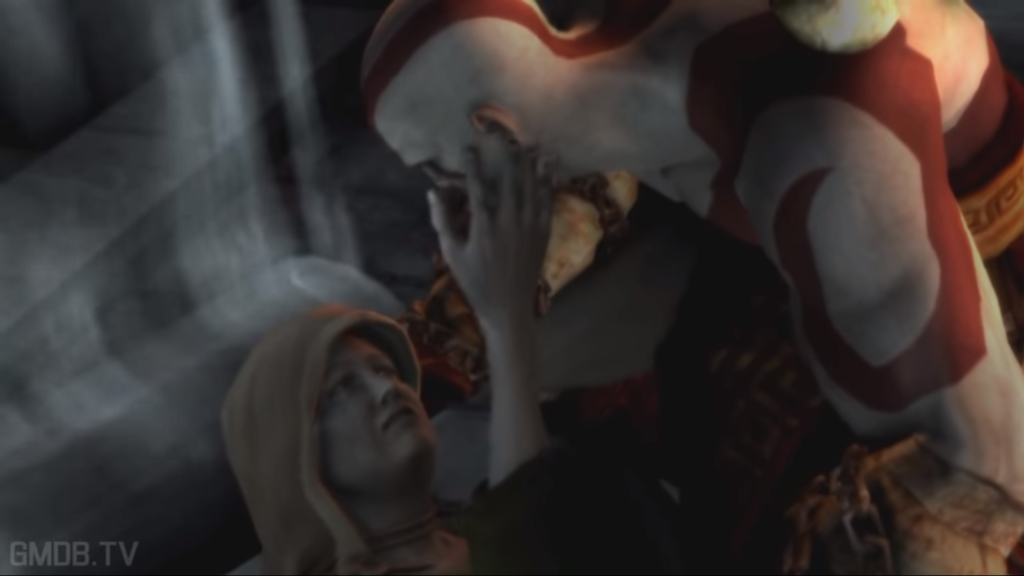
O’ Brother Where Art Thou?
There will be spoilers for the game from this point on. Ghost of Sparta takes place in the time between God of War I and God of War II. Kratos is the new God of War after killing Ares and is still haunted by visions of his slaughter of his family and the other dark deeds he committed.
These visions are a bit different, however, showing the figures of a young child with markings similar to Kratos, and an old woman lying on a bed in the Temple of Poseidon.
Despite warnings from Athena, he ventures out to the city of Atlantis, Poseidon’s kingdom to find answers. On his way there, Kratos and his men are attacked by the Scylla, a monster sent by the God of the sea.
After fighting through the city and killing the beast, Kratos finds his mother, Callisto in poor condition. She tells him that his brother Deimos is alive and trapped in Death’s Domain.
She then tries to tell Kratos who his father is, but is transformed into a huge monster before she can finish. Kratos fights it off, and Callisto thanks him for freeing her before dying.
Meanwhile, killing the Scylla and freeing the titan Thera has plunged Atlantis into ruin. The city becomes set ablaze and rapidly sinking.
Thanatos, the God of Death, watches Kratos from afar and sends his daughter Erinys to kill him. She fails and Kratos goes back to Athens. He greets his subjects and earns a new weapon, before setting off back to Atlantis to enter Death’s Domain.
Before he can do that, Posiden sinks his ship and kills his crew, telling him that he will not forget his actions. After making it through the gauntlet of monsters standing in the way of him and Deimos, Kratos frees his brother.
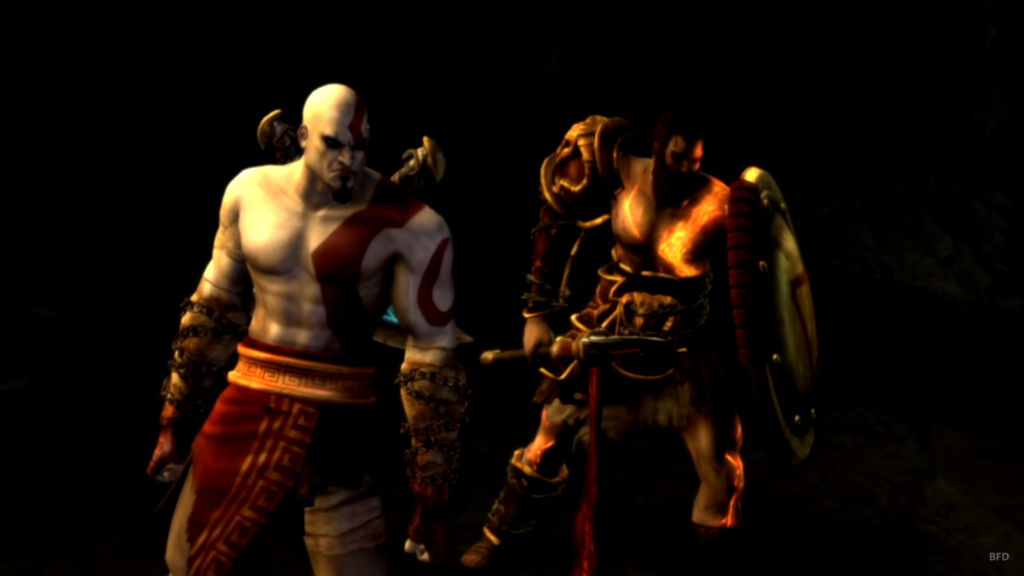
Brothers of War
Yet, Deimos is not happy to see his brother as he is angry that it took him so long to find him, and the two fight. Thanatos then breaks it up and throws Deimos off a cliff. Hanging for dear life, Kratos lifts his brother up, and the two reconcile.
You fight a small wave of enemies with Deimos, as he dons the Arms of Sparta and can be commanded to throw a spear at your foes.
The two then fight Thanatos, but Deimos is killed in battle. Kratos manages to slay the God and buries his brother next to his mother by the Suicide Bluffs (the cliff Kratos jumps off of in the first game). Due to losing his ties to the mortal world, he becomes worthy of full Godhood but denies it when Athena attempted to give it to him.
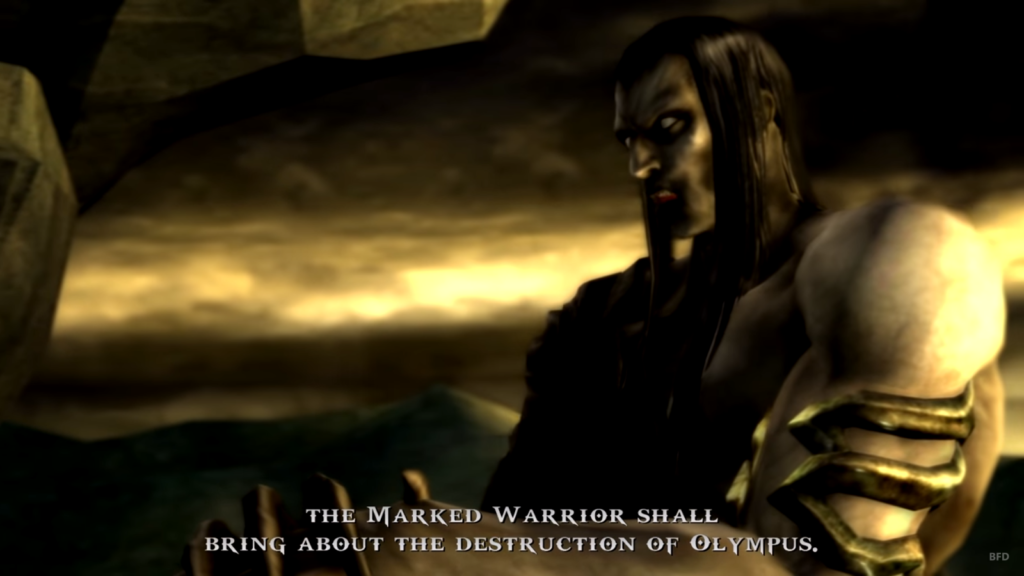
It’s a much more grounded and personal story than some of the other games, and it is cool to see members of Kratos’ family.
I just wish that this game had been released on the PS3 with an enhanced story. It felt super cheap to finally meet and rescue Deimos, only to have him die in the final boss fight a very short time following freeing him.
Maybe Thanatos could’ve thrown them both to Hades, and they would have to fight their way out. That’s the biggest missed opportunity for me. I wanted more of Deimos and Kratos fighting together so that his death would be that more impactful and players might not see his death as a foregone conclusion.
Other than that, this game’s story is a lot better than Chains of Olympus in my view.
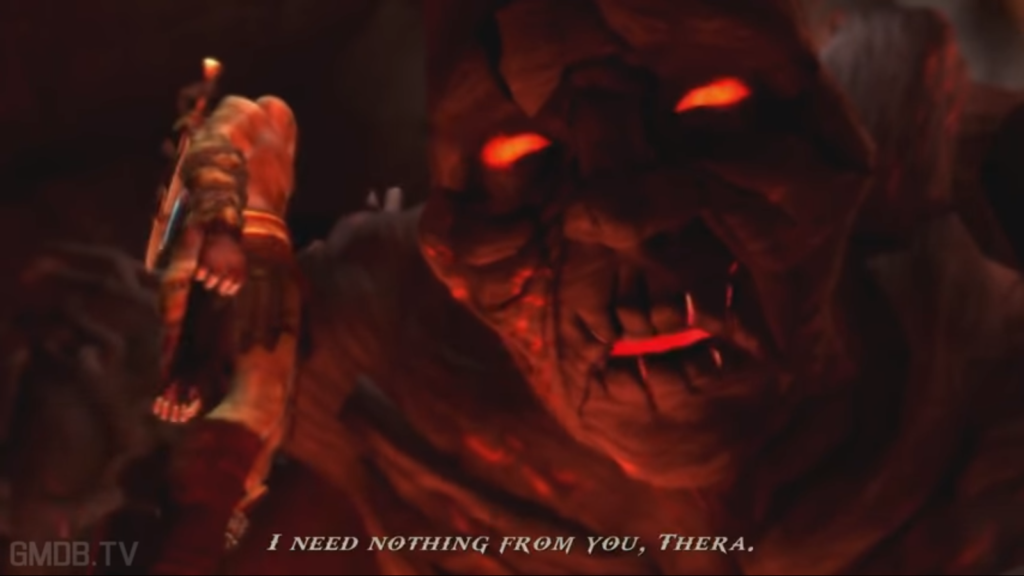
Fanning the Flames
If you’ve been following along, you know how gameplay works in the series, so I’ll keep it brief and focus on the changes made.
Kratos has the Blades of Athena that slice and dice his enemies, which are usually undead soldiers and massive monsters such as Minotaurs and Gorgons. They can be upgraded and throughout the game, Kratos will get magic attacks that can clear a horde of enemies with ease.
The big gimmick this time is setting the Blades on fire after freeing Thera from her prison. It has a meter that drains as it is used and refills itself pretty fast. The flames do extra damage and can destroy certain objects that block Kratos’ path.
It’s a worthy addition that spices things up a bit. Another big change is the Arms of Sparta, a spear and shield that Kratos can use to bash opponents and throw the spears at enemies perched from afar.
It takes the place of a bow and arrow and serves as the weapon of Deimos at the end of the game. It’s a worthwhile addition that provides variety to combat.
A usual God of War staple is puzzles and while this game has some, they don’t feel as interesting or as present as they were in other games.
Most of the time puzzles revolve around moving a box or statue out of the way so Kratos can go through a path, or jump up to a ledge. There are the usual puzzles where you put a dead guy’s corpse on a pressure plate, but other than that nothing really changes the game, so to speak.
To be quite honest, the only magic attack I used and remember is the Scourge of Erinys, as it brought the souls of the dead to attack multiple enemies at once. It was the most effective power.
Besides these small additions, this game is more God of War, and it doesn’t fix what isn’t broken. While it feels a bit repetitive towards the end, it’s as much fun as it’s ever been.
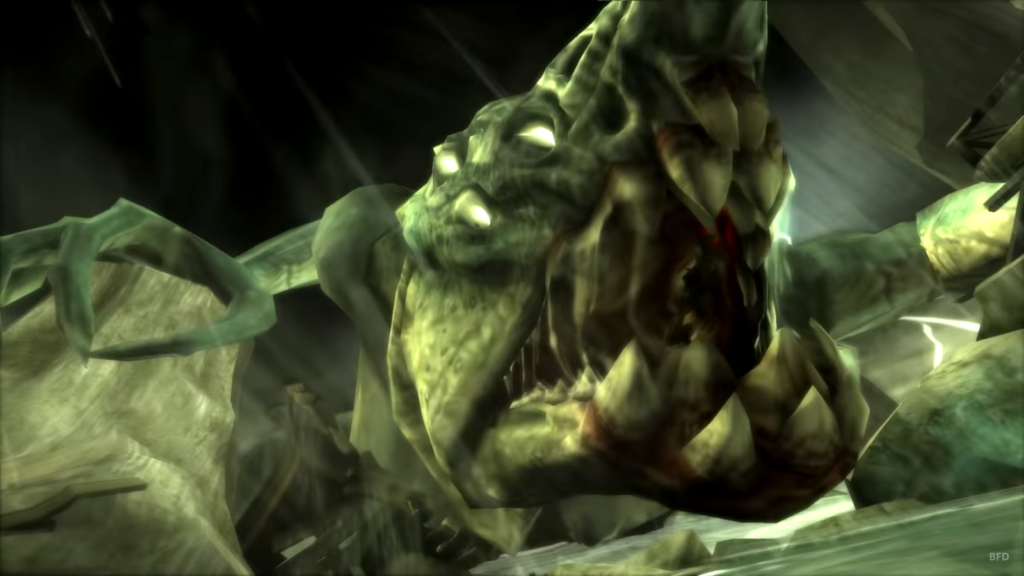
Big Presentation, Small System
God of War: Ghost of Sparta looks and sounds great. Graphically, it is very nice and maintains the style of its big brothers on the PS2 and PS3. It looks a lot better than Chains of Olympus and I would argue it looks as good as the first God of War game, if not better.
Character models look more detailed, and give characters like King Midas, the Grave Digger, Deimos and Thanatos a clear look and help show some visual traits of the characters that were missing in Chains of Olympus.
As usual, the soundtrack is the same bombastic orchestral score that gives every action you make a little extra punch. The sound design is nice as well, using a lot of the same noises and sound bytes from the series.
This game also introduces a new mechanic where Kratos can slide on a surface and traverse areas he normally couldn’t. These happen a few times throughout, mainly when escaping the crumbling city of Atlantis.
These sections look very nice and show just how much damage Kratos did to the city. I can only imagine seeing the breathtaking scale of this game on a handheld system.
The game also has the usual wealth of post-game content, as a new difficulty is unlocked after beating the game and challenge rooms based on Athena and Ares pose tests for seasoned players. There is also a combat arena feature where you can hone your skills and farm for red orbs.
Red orbs are needed in this game more than ever, as a feature exclusive to Ghost of Sparta is the Temple of Zeus. Red orbs can be redeemed here to unlock bonus movies, galleries and enemies for the combat arena.
Even with more restricted hardware, the usual bevy of extra stuff for the player is available here.
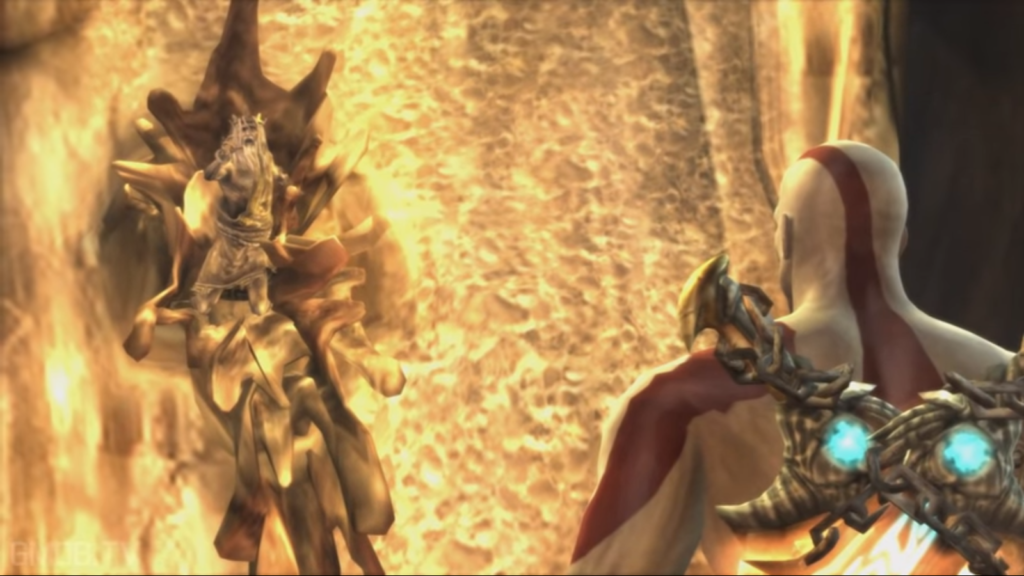
Final Thoughts
God of War translated to the PSP incredibly well. The spectacle, story and gameplay were not dumbed down due to the limitations of the hardware. While Chains of Olympus stands as the best-reviewed game on the system with a 91, Ghost of Sparta has an 86.
I would switch these scores around, as Ghost of Sparta has a better story, better gameplay and a better balance between platforming and combat.
However, both games are great and are worthy additions to the franchise, especially if you just can’t get enough of the series.
I have some mixed feelings about this game’s story, as parts of it feel rushed and not fleshed out enough. The gameplay is also a lot of fun but isn’t revolutionary at all and this was the first time where I felt a faint bit of fatigue, using the same combos and fighting some of the same enemies present in the last four games.
I suggest you play this game if you want to learn more about Kratos’ backstory and haven’t been burnt out by the series yet. It’s more God of War, and that’s never a bad thing.
Rating: 8/10
Henry Wolski
Executive Editor


